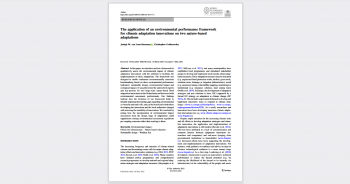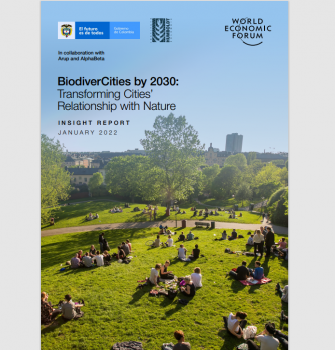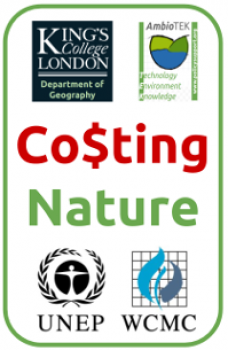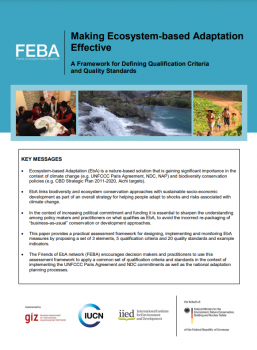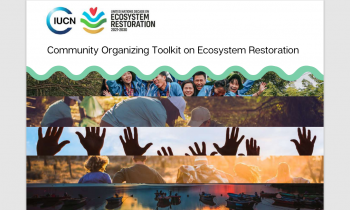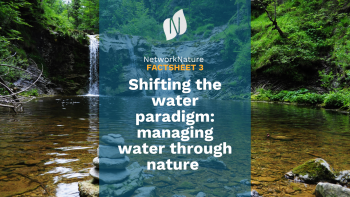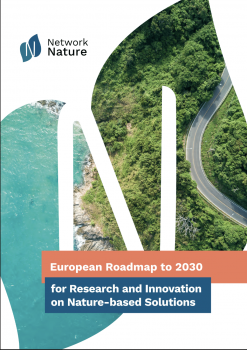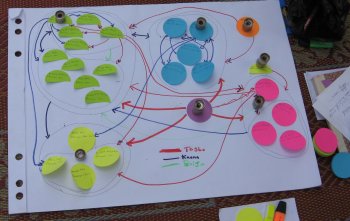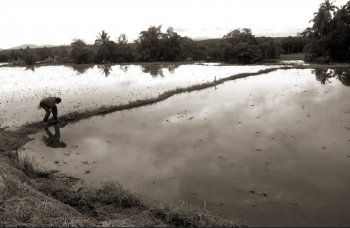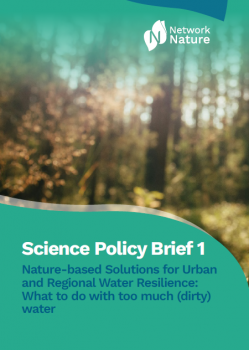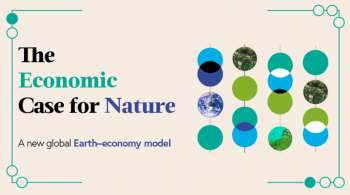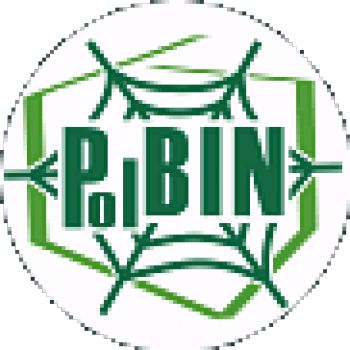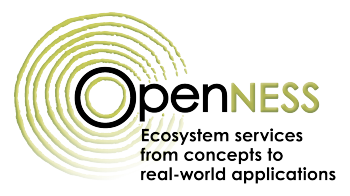Marketplace
Study: The application of an environmental performance framework for climate adaptation innovations on two nature-based adaptations
In this paper, they introduce and test a framework to qualitatively assess the environmental impact of climate adaptation innovations with the ambition to facilitate the implementation of these adaptations. The framework was designed to enable continuous environmentally conscious benchmarking based
Insight report: BiodiverCities by 2030: Transforming Cities' Relationship with Nature
The World Economic Forum with the Government of Colombia, the Humboldt, Arup and AlphaBeta, has released this insight report to call on cities, as crucial players in reversing nature loss and climate change, to become BiodiverCities by 2030. The report showcases the opportunity for urban leaders
Wood production maps for European forests
The European Forest Institute, in cooperation with Humboldt-Universitat zu Berlin and VU University Amsterdam, developed a set of high-resolution wood production maps for European forests. The maps contain predicted volumes of wood production, based on statistics collected for 29 European countries
Co$ting Nature
Co$ting Nature is a web based tool for natural capital accounting and analysing the ecosystem services provided by natural environments (i.e. nature's benefits), identifying the beneficiaries of these services and assessing the impacts of human interventions. This Policy Support System (PSS)
Green Cities Framework (GCF) Handbook
Cities of all sizes and types can develop effective strategies for nature-based solutions, allowing them to create innovative and inspiring ways to tackle major urban challenges, such as flooding and heat stress. Embedding nature-based solutions in this way in long-term city planning, development
EU - China collaborations in the GrowGreen project
This report examines the scope for future EU China collaboration on Nature Based Solutions (NbS). In the original call for “demonstrating innovative nature based solutions in cities” (H2020-SCC-2016-2017) the call made reference to the EU-China Sustainable Urbanisation Partnership and the EU-China
Making Ecosystem-based Adaptation Effective A Framework for Defining Qualification Criteria and Quality Standards
Many organizations, including members of the Friends of EbA network (FEBA) 11 have gained both conceptual and practical experience in designing and implementing EbA measures in various regions, ecosystems, and levels of governance. These experiences provide a rich source of lessons and are a good
Community Organizing Toolkit on Ecosystem Restoration
Ecosystem degradation has reached the far corners of our planet from our precious rainforests to our priceless reefs. Irresponsible human activities have caused and exacerbated our climate crisis and ecosystem degradation, forcing us to cope with biodiversity loss, habitat destruction, dramatic
NetworkNature Factsheet 3: Shifting the water paradigm - managing water through nature
This Factsheet explores common water-related challenges, such as water availability, quality, and management, their associated risks, and relevant policies, while proposing nature-based solutions as a paradigm shift. By outlining key benefits of using nature for an integrated and ecosystem-based
European Roadmap to 2030 for Research and Innovation on Nature-based Solutions
This Roadmap to 2030, facilitated by NetworkNature, identifies core action areas for European research and innovation on Nature-based solutions (NbS) that are essential to achieve EU goals for NbS development and deployment. It offers a holistic view of the efforts made thus far, identifies
Participatory Network Analysis and Planning
CoKnow Consulting is offering facilitation and training to build capacity for inter- and transdisciplinary processes, by supporting you and your stakeholders to co-produce knowledge and co-design solutions for sustainability. One tool which has proven to be particularly helpful is the Net-Map tool
VÍZGAZDÁLKODÁS: Dombvidéki természetalapú vízmegtartási megoldások
A Magyar Mérnöki Kamara Kiadványsorozatában megjelent mérnöki útmutató egy segédlet a települési szintű klíma adaptációhoz. A szöveg összegyűjti és rendszerezni azokat a fogalmakat és ismereteket, amik szükségesek a települési szintű vízgazdálkodási rendszerek kialakításához. Bemutatja a
Nature-based Solutions for Urban and Regional Water Resilience: What to do with too much (dirty) water
This policy brief explores the opportunities and challenges in the integration of Nature-based Solutions (NbS) into urban and regional water resilience planning. The brief draws from research, policy, and good practice from the wider NbS community, and presents recommendations to enhance the
- Document
Keys for Forest Types Classification Schemes to support the reporting of Support Sustainable Forest Management Indicators in Various Contexts
For biodiversity monitoring, GO-SURF has emphasized the need for standardization efforts, even through simple solutions such as transition tables.
The economic case for nature
The Economic Case for Nature is part of a series of papers by the World Bank that lays out the economic rationale for investing in nature and recognizes how economies rely on nature for services that are largely underpriced. This report presents a first-of-its-kind integrated ecosystem-economy
Integration of NBS in local governance contexts and urbanisation trajectories in CONEXUS EU and CELAC cities. Evidence from Barcelona, Buenos, Aires, Bogotá, Lisbon, Santiago, São Paulo and Turin
The present report analyses the current state of integration in Nature-Based Solutions (NBS) governance and planning processes within and across scales and dimensions of all CONEXUS cities: Barcelona, Buenos, Aires, Bogotá, Lisbon, Santiago, São Paulo, and Turin. Different levels of cooperation
Polish Biodiversity Information Network
The Polish Biodiversity Information Network (PolBIN) was founded in 2003. At the beginning the main goal of its activities was to initiate cooperation of Polish research institutions with the international system of GBIF (Global Biodiversity Information Facility). In 2008 it was transformed into a
OpenNESS Synthesis paper: Ecosystem services: a gender perspective
The issue of gender and sustainability has mainly been approached from two different perspectives: the different role of women and men in contributing to sustainable pathways and the differential impacts of environmental degradation on women and men. Both are highly interconnected as the adaptation
- Document
Efficient Sampling Methodology for Calculating Soil Carbon Credits.
Sustainable Forest Management enhances carbon storage in various forest compartments (soil, biomass, and necromass), increases ecosystem services and forest productivity, mitigates climate change, and supports the local rural economy.
D3.5 Results of six seedbed interventions in the six Cultivating Cities
This report shows the processes and results of six seedbed interventions in the project in the six Cultivating Cities. These interventions were developed in close cooperation between city partners and partners from WP3. Publication Date: 01 Mar 2023
- ‹ previous
- 33 of 45
- next ›

